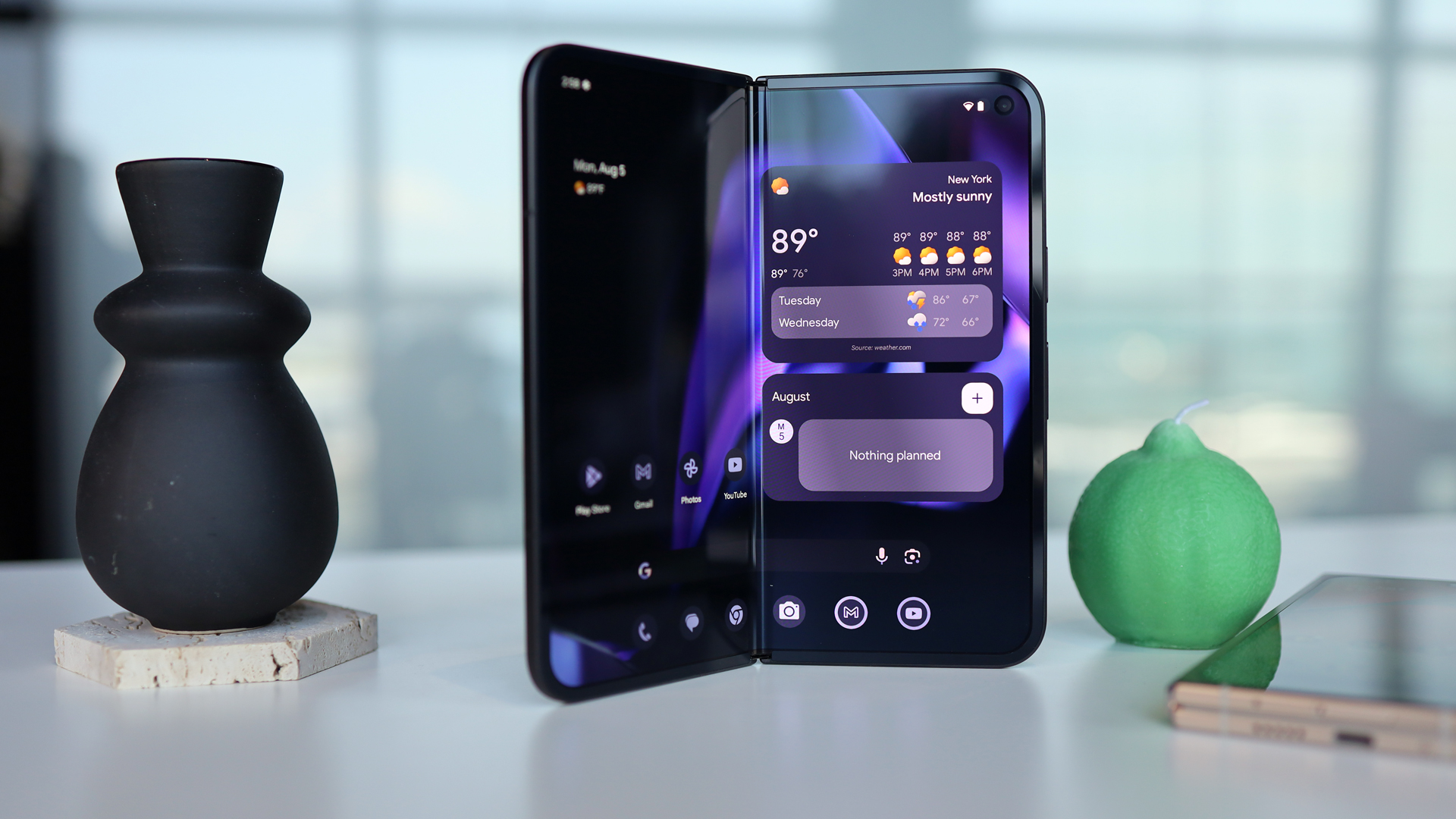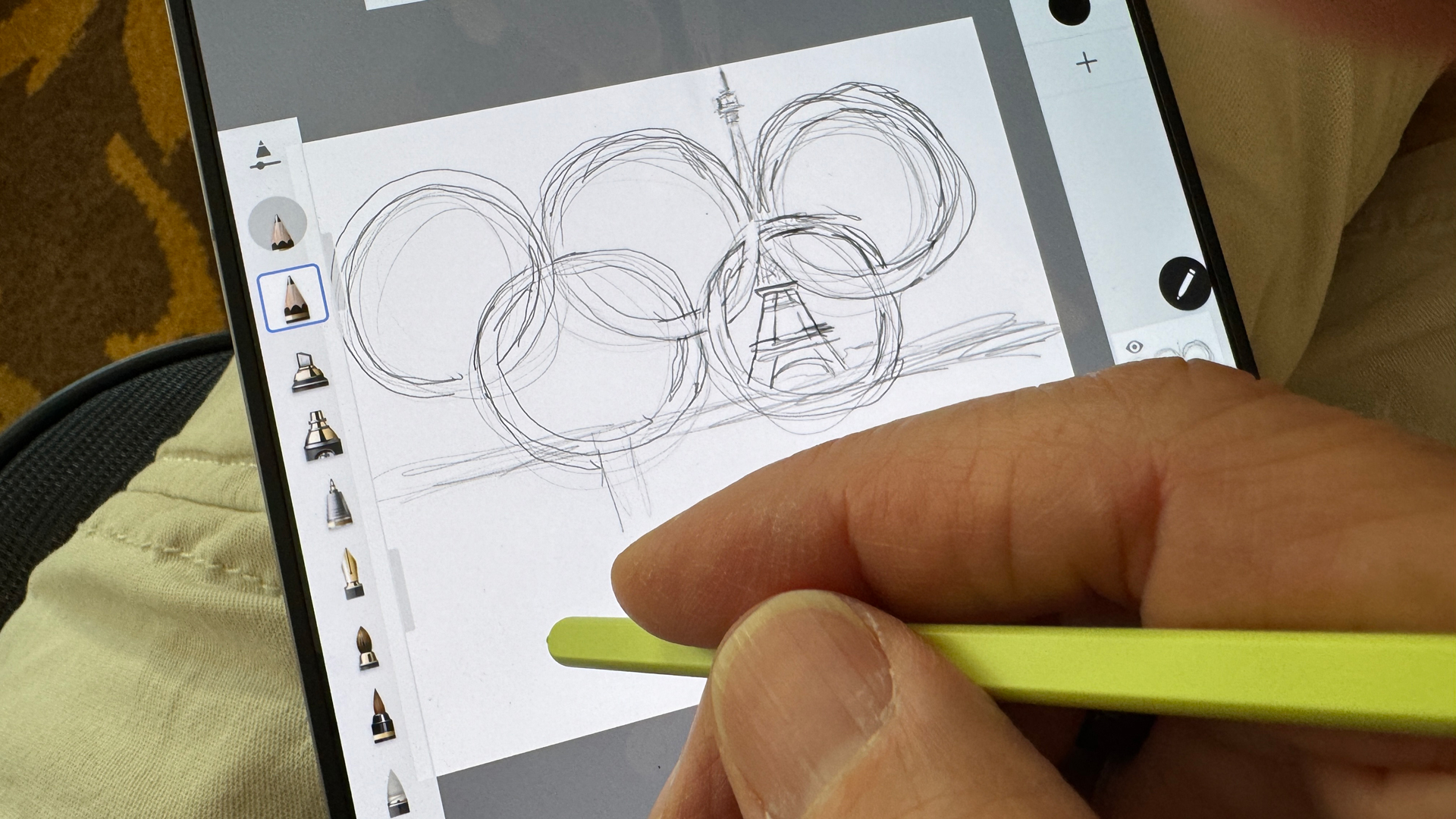
Google has a mixed Pixel hardware track record but one would be hard-pressed to fault the remarkable reimagining of its latest foldable device. The Google Pixel 9 Pro Fold is so different from the first Fold that it is almost unrecognizable as a follow-up. My initial hands-on experience was positive and I'm almost certain it will sit at or near the top of the best foldable phone heap.
It might've even beat out my other favorite folding handset, the Samsung Galaxy Z Fold 6 but for one big missing feature: stylus support.
Perhaps you don't think this is important. The majority of the best smartphones don't have styluses or don't support digital stylus input. You can use a soft-tip, analog stylus on virtually any touch-screen smartphone but it won't recognize pressure or tilt and you won't be able to rest your hand on the screen while you write or sketch. These capabilities are especially important if you plan to draw on the display.
Samsung Galaxy S 24 Ultra (and previous Samsung Galaxy Notes) owners have long enjoyed an integrated stylus that slides out of the body and is ready to use at any time on the large-screen device. Samsung's Galaxy Fold series has had similar stylus support for a couple of generations. Samsung does not hand you an S Pen for Fold for free when you buy the Samsung Galaxy Z Fold 6, they charge you $99 for the privilege. Even so, it's a worthwhile investment.

Stylus support matters on foldables because of their secret screen. The Google Pixel 9 Pro Fold is not just a 6.3-inch, slightly thick handset. It is an able Android and Gemini AI-infused smartphone with a hidden 8-inch tablet screen. That's the only reason to spend $1,799 / £1,749 on such a device – for access to a large screen in a form factor that's not much larger than a standard phone. And when you have a touch-screen of that size, you want to use it for all the things you might do on a similarly-sized tablet display.
When I first tried the Google Pixel 9 Pro Fold, there wasn't time to dig into secondary features like stylus support. I thought it might support one, but wasn't sure.
When I asked a Google exec about it, he told me there was no stylus support (and Google does not sell a stylus for it) and seemed quite perplexed that I'd even want such a thing. Don't, he asked, most digital artists use larger Wacom tablets?
Wacom tablets were a part of my early digital drawing experience but when the iPad arrived I switched to that and, initially, dumb styluses. The arrival of the Apple Pencil (and apps like Procreate) was a revelation.
I explained that as an amateur artist and lifelong doodler, I'll draw on a screen (or piece of paper) of any size and, as part of my ongoing Samsung Galaxy Z Fold 6 tests have been drawing on the 7.6-inch flexible display. Naturally, it's not exactly the same as drawing on an iPad. The stylus is relatively small, but not too small. The tip is a bit squishy to protect the flexible OLED but I actually like how it feels. Plus, there's the screen crease but I found that when I'm deep into drawing, I don't notice it.
What to do with a folding screen
My point to this exec was that, yes, when I have a hidden 8-inch display in my pocket, I expect that I can pull it out, unfold it, and start drawing. Unfortunately, the Google Pixel 9 Pro Fold apparently lacks the necessary digitizing screen layer that would allow stylus support. I could bring a soft analog stylus with me and try that, but since stylus input is not explicitly supported, I worry that there's a chance I could damage the flexible display.
Granted, adding a digitizing layer to a folding phone display is not easy. When Samsung decided to add the capability in 2022 to the Z Fold 5, executives told me they had to figure out how to get a rigid copper layer under the bendable OLED. In the end, they broke the panel in two and put one-half on each side of the 7.6-inch display.
While one could argue that Google has made similar, innovative leaps with the Pixel 9 Pro Fold, giving it the dimensions advantage – a wider cover screen and larger folding display – Samsung Galaxy Z Fold 6 is already winning on the creativity front.
Maybe Google will include digitizing stylus support in the next folding Pixel. I've already put in my request.







